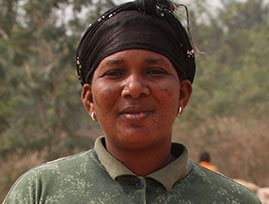Our Experience
Ghana Export Quality and Awareness Project (EMQAP)
Project Description
Ghana’s Ministry of Food and Agriculture contracted ASI to conduct a study and make recommendations for ownership and management models for citrus collection points and field packinghouses established through the Export Quality and Awareness Project (EMQAP). ASI’s study and recommendations are informing how the government is moving forward with privatization and management of these facilities.
Project Approach
ASI took a three-pronged approach in conducting the study: It assessed the management and ownership models of similar facilities used for horticulture and other value chains in Ghana, Kenya and South Africa; it conducted fact-finding meetings with consultants involved in the development of two facilities, as well as stakeholders of the facilities; and it performed desk review and analysis of relevant legal and regulatory documents, management practices, and facility operations data.
The project team visited public and private packinghouses (for fruit and vegetable exports) and commodity collection/consolidation centers to assess technical operations, equipment, and management and ownership models. Management model recommendations were informed by stakeholders’ risk exposure and by management practices and models at similar facilities funded by both the public and private sector. Operational considerations included user-fee structures, equipment needs and strategies for optimizing each facility’s capacity.
Impact and Accomplishments
The study made recommendations to the Ministry of Food and Agriculture and other stakeholders on the following:
- The most appropriate ownership models for citrus collection points and packinghouses
- The most effective management models and arrangements for the facilities
- The most feasible fee structure for services provided by each facility
- The essential equipment required for efficient operations in each facility
- The most effective strategy for increasing utilization capacity of facilities
The ministry—as part of their development of a public-private partnership policy—approved ASI’s approach and have begun implementing the recommendations.
» Back to main Our Experience page.
|


